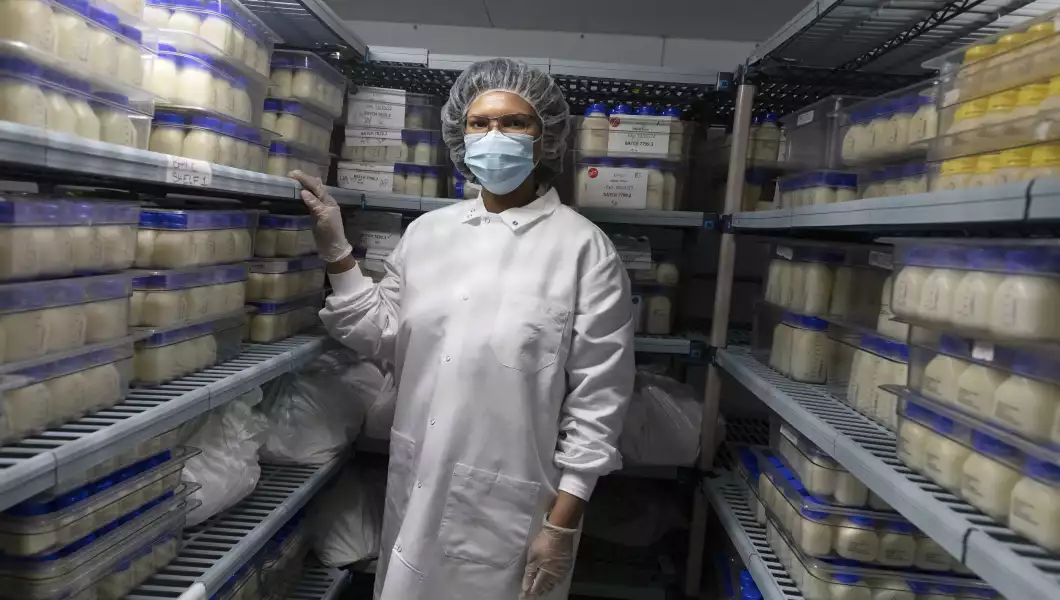The great baby milk drought of 2022 is a man-made disaster, a perfect storm of regulatory and policy failure. There is, however, a simple formula for restoring a steady flow of the white stuff. First, the Biden administration should immediately suspend the tariffs and restrictions that block imports from the European Union and Canada, whose safety and quality standards exceed the FDA’s. Next, the administration should break up the government-sponsored monopoly that caused the drought in the first place.
President Joe Biden cannot blame the Russians for this one. Three multinational corporations dominate the $4 billion market in infant formula, and federal policies keep it that way. According to GlobalData, in 2020, Abbott Laboratories had 28.5% of the market, Gerber had 28%, and Reckitt had 25.9%. Their biggest customer is the Department of Agriculture’s Special Supplemental Nutrition Program for Women, Infants, and Children
Each state’s WIC agency awards a “sole-source” contract to a formula manufacturer. “Sole-source” might sound like the kind of appellation given to artisanal cheese or extra-virgin olive oil, but it’s a euphemism for state-sponsored monopoly. In return for the contract, the manufacturer provides the state a large rebate on each sale. The formula market has been contracting for decades — the birth rate has slowed, and breastfeeding is back — so manufacturers offer rebates as high as 90%. Their profit lies in what a 2011 report from the USDA’s Economic Research Service called the “spillover effects” of a statewide monopoly: increased sales to non-WIC consumers through higher visibility of the manufacturer’s non-WIC products on the shelves and an increased likelihood of being recommended by physicians and hospitals.
Since the mid-1990s, only the big three manufacturers have received WIC contracts. Abbott is the sole WIC provider in 23 states and Washington, D.C. The White House confirmed last week that Abbott is also the “only supplier” for specialty formulas. The Sturgis, Michigan, facility that the Food and Drug Administration closed after a suspected Cronobacter contamination is a “key supplier” of them. The FDA is now reduced to saying it will “not object” to Abbott releasing “urgent, life-sustaining supplies” of specialty formulas made at the Sturgis facility.
The big three are not competing for the consumer’s favor. They are competing for the chance to milk a privileged relationship with federal and state governments. As in other sectors, “market concentration” leads to lower wages for workers and higher prices for consumers. The 17% or higher tariffs that the Trump administration imposed on imported formula from Canada were not a victory for America’s workers. Nor did their benefits trickle down to consumers. The tariffs protect a rigged market whose beneficiaries are all multinationals. Gerber is owned by Nestle of Switzerland. Reckitt is based in the United Kingdom. Abbott’s parent company is in Argentina, and for many years, Abbott paid, or instead, avoided paying, U.S. taxes by registering in Ireland.
As the New York University economist Thomas Philippon argued in The Great Reversal: How America Gave Up On Free Markets, the economies of scale by which mergers are justified lead to higher share prices but also to less competition, fewer incentives for quality, and less flexibility in production. The Biden administration blames supply chain problems and diverts the public’s attention by denouncing price gouging. Still, these are the symptoms of federal policies that have stifled the free market. All it took for the formula system to break down, with a 43% decline in supply by last week, was a slight rise in demand and a single bacterial outbreak.
The command economy in infant formula is a case study in “regulatory capture,” the shaping of policy to reflect private interests. Inexplicably, the FDA strictly limits the import of European-made formulas, not on the grounds of safety or nutritional quality — studies show that the European brands have higher levels of lactose and fewer added sugars — but because the FDA claims their labeling of linoleic acid content is unsatisfactory. Yet on May 10, the FDA announced a “streamlined import entry review process for certain products coming from foreign facilities with favorable inspection records.” Suddenly, this is no longer a matter of life and death.
Read More From The PatriotAmerican
The crisis has exposed systematic bipartisan and institutional failures that endanger the health of some of the youngest and most vulnerable people. In September, Biden will host the first “food security” conference at the White House in 50 years. One of the outcomes of the previous conference, hosted by President Richard Nixon in 1969, was creating the WIC program. This year’s conference is the ideal place to announce the opening of state-level markets and the removal of tariffs and unnecessary regulations on imports. These are simple formulas, but they may not be to this administration’s taste.

